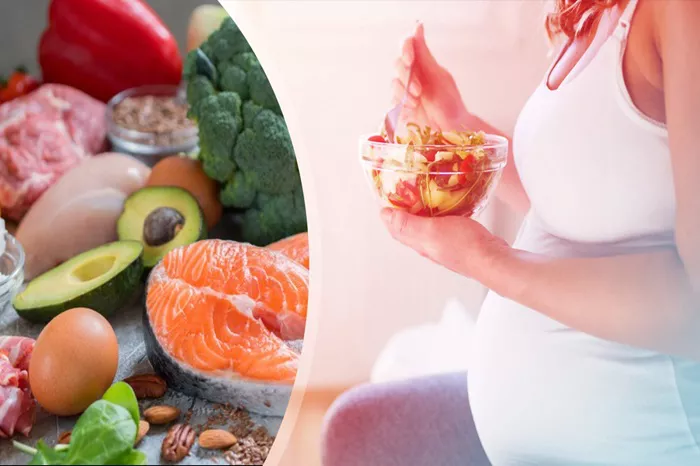Pregnancy is a time of significant change and increased nutritional needs. Among the many nutrients essential for a healthy pregnancy, protein plays a critical role. It is fundamental for the growth and development of the baby and the health of the mother. Understanding how much protein a pregnant woman should consume is vital for ensuring optimal outcomes for both mother and child.
Why Protein is Important During Pregnancy
Protein is essential for the body. It is made up of amino acids, which are the building blocks of the body’s cells. During pregnancy, a woman’s body goes through numerous changes, and the baby needs nutrients to grow. Protein supports the development of fetal tissues, including the brain. It also helps in the growth of maternal tissues, such as the uterus and breasts.
The Recommended Daily Allowance of Protein
The Recommended Daily Allowance (RDA) for protein varies based on a person’s age, sex, and level of physical activity. For non-pregnant women, the RDA is about 46 grams per day. However, during pregnancy, the needs increase. Pregnant women are generally advised to consume about 70-100 grams of protein per day. This amount can vary depending on individual circumstances such as weight, activity level, and overall health.
Sources of Protein for Pregnant Women
Protein can be obtained from various sources. It is important for pregnant women to include a variety of protein-rich foods in their diet.
Animal Sources:
These include meat, poultry, fish, eggs, and dairy products. Lean meats, like chicken and turkey, are good options. Fish is also a great source, but it is essential to avoid those high in mercury.
Plant Sources:
For those who prefer plant-based diets, there are plenty of options such as beans, lentils, tofu, nuts, and seeds. Whole grains like quinoa and buckwheat are also good sources of protein.
Dairy:
Milk, cheese, and yogurt provide not only protein but also calcium, which is vital for bone health.
SEE ALSO: How Many Months Pregnant Can I Fly?
Balancing Protein Intake with Other Nutrients
While protein is crucial, it is important to balance it with other nutrients. A well-rounded diet should include carbohydrates, fats, vitamins, and minerals. Carbohydrates provide energy, while fats are necessary for the absorption of certain vitamins.
Vitamins and Minerals:
Pregnant women should ensure they are getting enough iron, calcium, vitamin D, and folic acid. These nutrients are essential for the baby’s development and the mother’s health.
Hydration:
Drinking plenty of water is also important. Water helps transport nutrients to the baby and can prevent constipation, a common issue during pregnancy.
Potential Risks of High Protein Intake
While protein is important, excessive intake can have risks. Very high-protein diets can strain the kidneys and liver. They may also lead to an imbalance in nutrient intake, reducing the consumption of other essential nutrients. It is always best to follow recommended guidelines and consult a healthcare provider.
Protein Needs in Different Trimesters
Protein needs can vary throughout the stages of pregnancy.
First Trimester:
During the first trimester, the increase in protein needs is relatively small. The RDA may be slightly higher than usual, around 1-1.2 grams per kilogram of body weight.
Second Trimester:
As the baby starts to grow more rapidly, protein needs increase. The RDA is usually about 1.2-1.4 grams per kilogram of body weight.
Third Trimester:
This is the period of the highest protein requirement, about 1.4-1.5 grams per kilogram of body weight. The baby’s organs and tissues are developing rapidly, requiring more protein.
Protein Supplements During Pregnancy
Some women may consider protein supplements during pregnancy. While whole foods are the best source of nutrients, supplements can help meet protein needs if necessary.
Protein Powders:
These can be convenient but should be chosen carefully. It is important to select high-quality, low-sugar options and consult a healthcare provider before use.
Protein Bars:
These can be a good on-the-go option but, like protein powders, should be chosen carefully. Avoid bars high in sugar and artificial ingredients.
Special Considerations for Vegetarians and Vegans
Vegetarians and vegans can meet their protein needs with careful planning. It is important to include a variety of plant-based protein sources to ensure all essential amino acids are consumed.
Complementary Proteins:
Combining different plant proteins can provide a complete amino acid profile. Examples include rice and beans, or hummus and whole-grain pita.
Soy Products:
Tofu, tempeh, and edamame are excellent sources of plant protein. They can be included in various dishes for variety.
Consulting with a Healthcare Provider
Every pregnancy is unique. It is crucial for pregnant women to consult with their healthcare provider to determine their specific protein needs. This ensures personalized recommendations based on individual health, dietary preferences, and any medical conditions.
Conclusion
Protein is a vital nutrient during pregnancy, supporting the growth and development of the baby and the health of the mother. Pregnant women should aim to consume 70-100 grams of protein daily, sourced from a variety of foods. Balancing protein with other nutrients is essential for a healthy pregnancy. Consulting with a healthcare provider ensures personalized guidance and supports the best possible outcomes for mother and child.


